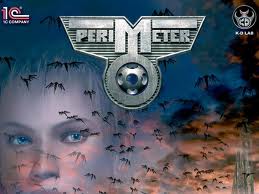38 posts
• Page 2 of 2 • 1, 2
Riverwood = Dragon Magnet
-

IM NOT EASY - Posts: 3419
- Joined: Mon Aug 13, 2007 10:48 pm
That said, Riverwood attracts more than its share of dragons, whether or not I FT there. It just seems to be a hotspot, at least in my games, whether I have mods loaded or not.
As for "no more dragons after the main quest"... I'm dead set against this. I'm the Dragonborn, not the Nanny, I can handle a few dragons (two at a time often enough.) I enjoy fighting dragons, especially since downloading the Deadly Dragons mod. New types of dragons with new weapons, new appearances, etc. Worst so far? A Nether Dragon. Yep, he was invisible half the time, fading in and out, one hell of a battle.
-

Paul Rice - Posts: 3430
- Joined: Thu Jun 14, 2007 11:51 am
You know I wouldn't mind Alvor dying so much if you could marry his widow. She's one of the best looking women in the game and she comes with a child so it's instant family.
Heh, yeah, and you'd get a built in smithy to boot!
-

sally R - Posts: 3503
- Joined: Mon Sep 25, 2006 10:34 pm
I always get them at the College of Winterhold, some fool ancient dragon who thought attacking all the province's most powerful mages was a good idea. Dem bones, dem bones, dem valuable bones.
As a Mage, I fast travel there a lot. It's fun when dragon attacks. Plenty of pillars to hide behind, building to go into when things get tough. And all the mages there are pretty strong so I don't worry about them.
I've just come to accept that Alvor is going to die at some point. I don't go to Riverwood too often, once is enough for Alvor.
-

Genocidal Cry - Posts: 3357
- Joined: Fri Jun 22, 2007 10:02 pm
I've had this problem a lot in Dawnstar and Winterhold. Dragons seem to spawn there everytime I get a carriage to these places. It's frustrating as they're depleting Dawnstar of merchants and mine owners. I've lost merchants and other NPC's I liked all over Skyrim due to these blasted dragon attacks, I don't get why the armorless blacksmith is scripted to attack a fire/ice breathing behemoth, as well as his wife.
-

Alberto Aguilera - Posts: 3472
- Joined: Wed Aug 29, 2007 12:42 am
By 38th level in my first toon all that is left in Riverwood is 2 children and a chicken! Anyone who went outside is long dead. Just the respawning guards keep it from being a ghost town.
-

Honey Suckle - Posts: 3425
- Joined: Wed Sep 27, 2006 4:22 pm
By 38th level in my first toon all that is left in Riverwood is 2 children and a chicken! Anyone who went outside is long dead. Just the respawning guards keep it from being a ghost town.
That is both funny and sad.

-

Elea Rossi - Posts: 3554
- Joined: Tue Mar 27, 2007 1:39 am
too many dragons have spawned in riverwood, where do a buy my weapons now if not for the blacksmith?  theres a loverly supply of bodies waiting to be pushed into the stream right now :@
theres a loverly supply of bodies waiting to be pushed into the stream right now :@
 theres a loverly supply of bodies waiting to be pushed into the stream right now :@
theres a loverly supply of bodies waiting to be pushed into the stream right now :@-

Angela Woods - Posts: 3336
- Joined: Fri Feb 09, 2007 2:15 pm
The artistry is not in the kill, but in the execution, if you will. Be not hasty, stay thy death blow, savor (savour for you Brits) the brief time you have with each dragon (dragoun?,) for each is unique, and you will carry its soul until you die.
But, on topic, yes, I see more dragons in Riverwood than anywhere else, particularly when I fast travel.
But, on topic, yes, I see more dragons in Riverwood than anywhere else, particularly when I fast travel.
It's not a hard and fast rule for every word that came from the old French, indeed some words (like governour) reverted to the spelling of governor in British English. But it does only apply to words that came from French with a Latin root and the "or" ending. It must also be a nominative form of a noun.
The "our/or" combination comes at the end of a word or before a suffix. (E.g. honour, honour-ary)
And the word's root is Latin.
So although dragon's root is Latin, the old French word for dragon is indeed dragon, so there isn't an "or" ending.
I know it's off topic (and also against Forum rules), but I saw a chance here for everybody to learn something

-

Justin Bywater - Posts: 3264
- Joined: Tue Sep 11, 2007 10:44 pm
For me, dragons seem to appear most frequently at Winterhold. They seem to like magic alot lol
i don't fast travel at all, although i do use carriages.
i don't fast travel at all, although i do use carriages.
I've seen them quite often in Falkreath, but yeah they really really seem to like Winterhold, I've even had some instances were I wind up fighting two of them at once there.
-

Undisclosed Desires - Posts: 3388
- Joined: Fri Mar 02, 2007 4:10 pm
D'aww. I wish the villages I visit got attacked by dragons! (I'm sure the villagers think quite the opposite.)
I hear all of these tales about dragons attacking settlements, and the only dragon that I've had do something along those lines was a Blood Dragon at Rorikstead, and in then it didn't last long. *huff*
I hear all of these tales about dragons attacking settlements, and the only dragon that I've had do something along those lines was a Blood Dragon at Rorikstead, and in then it didn't last long. *huff*
Yeah, 900 hours and Riverwood has gotten attacked only once! Damn lazy dragons

But my ~30 hours old characters saw a second random dragon
 Unfortunately it was one of the pacifists
Unfortunately it was one of the pacifists 
-

Victoria Vasileva - Posts: 3340
- Joined: Sat Jul 29, 2006 5:42 pm
Well now close to 90 playing hours on PS3 I fast travelled to "inner part" of Winterhold mages college and a dragon attcked the first time. Still it′s rare, Riverwood is for getting dragon bones. No lagg so far. Save file size about 5500 kb? Has crashed once or twice. Kinda off topic but there it is.
-

Haley Cooper - Posts: 3490
- Joined: Wed Jun 14, 2006 11:30 am
Yeah, 900 hours and Riverwood has gotten attacked only once! Damn lazy dragons 
But my ~30 hours old characters saw a second random dragon Unfortunately it was one of the pacifists
Unfortunately it was one of the pacifists 

But my ~30 hours old characters saw a second random dragon
 Unfortunately it was one of the pacifists
Unfortunately it was one of the pacifists 
Are you serious ??? 900 hours on the one save ? How badly glitched is it ? Does it freeze often ? Do you have respawning issues ?
That's unbelievable.
-

WYatt REed - Posts: 3409
- Joined: Mon Jun 18, 2007 3:06 pm
38 posts
• Page 2 of 2 • 1, 2
